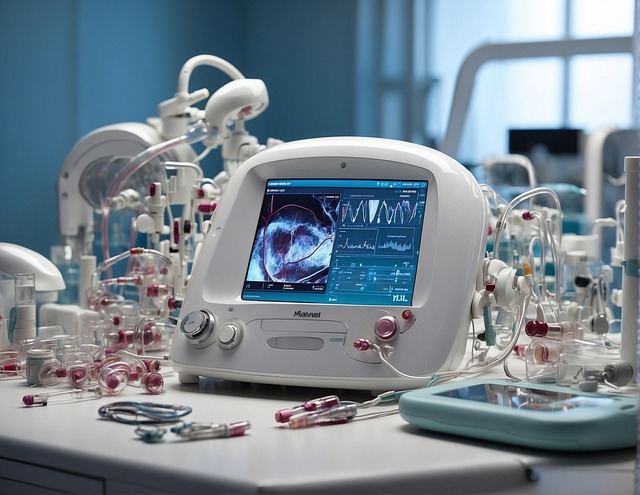Preventative screenings, covered by comprehensive Best Medical Insurance Plans, are key to early disease detection and reducing health risks. These plans offer routine check-ups, cancer screenings, dental care, and vision tests, encouraging proactive healthcare. Comprehensive coverage includes outpatient care, inpatient stays, prescription drugs, mental health services, and preventative measures like immunizations. By leveraging these benefits, individuals can take control of their health, foster community wellness, and save on long-term medical expenses.
The role of preventative screenings in medical insurance coverage is a vital aspect of modern healthcare. Understanding these screenings and their significance can empower individuals to make informed decisions about their health. This article delves into the impact of medical insurance on access to preventive care, highlights key components of comprehensive plans, and explores how top-tier best medical insurance plans seamlessly integrate preventative screening benefits. We’ll also guide you through common types covered and provide tips for maximizing your coverage.
- Understanding Preventative Screenings: Their Significance in Healthcare
- The Impact of Medical Insurance on Access to Preventive Care
- Key Components of Comprehensive Medical Insurance Plans
- How Best Medical Insurance Plans Integrate Preventative Screening Benefits
- Common Types of Preventative Screenings Covered by Insurance
- Maximizing Your Coverage: Tips for Utilizing Preventative Screening Services
Understanding Preventative Screenings: Their Significance in Healthcare

Preventative screenings play a pivotal role in healthcare, serving as a proactive approach to maintaining and improving overall well-being. These are medical tests or examinations conducted with the primary goal of preventing diseases or detecting them at an early stage when treatment is most effective. By incorporating preventative screenings into routine care, individuals can significantly reduce their risk of developing serious health conditions.
In the context of medical insurance coverage, best Medical Insurance Plans often prioritize and include these essential services as part of their benefits packages. Regular check-ups, cancer screenings, blood pressure measurements, and cholesterol tests are just a few examples of preventative measures that can catch potential issues before they become costly and challenging to treat. Such proactive healthcare not only improves outcomes but also contributes to the overall efficiency of healthcare systems by potentially reducing future medical expenses.
The Impact of Medical Insurance on Access to Preventive Care

Medical insurance plays a pivotal role in shaping individuals’ access to preventive care, which is crucial for maintaining overall health and well-being. One of the key advantages of having comprehensive medical coverage is the financial support it provides for various preventative screenings and check-ups. Best Medical Insurance Plans often include provisions for routine exams, cancer screenings, dental care, and vision tests, among others. This accessibility encourages proactive healthcare seeking, enabling early detection of potential health issues.
By covering these essential services, best medical insurance plans empower individuals to take charge of their health. Preventative screenings can identify risk factors and diseases in their initial stages, when treatment is often more effective and less costly. Moreover, regular check-ins with healthcare providers can promote healthier lifestyles, as professionals can offer guidance on nutrition, exercise, and stress management based on individual needs. This holistic approach to wellness contributes to improved population health outcomes and reduces the long-term burden on healthcare systems.
Key Components of Comprehensive Medical Insurance Plans

When considering the best medical insurance plans, comprehensiveness is key. These policies typically cover a wide range of services, from routine check-ups and preventive screenings to specialized treatments and hospital stays. Essential components include outpatient care, inpatient coverage, prescription drugs, mental health services, and preventive measures such as immunizations, screenings for chronic conditions, and wellness programs.
Comprehensive plans also often feature low deductibles, meaning policyholders pay less out of pocket for medical expenses before insurance kicks in, and they may offer a network of healthcare providers, allowing for greater flexibility and potentially lower costs when accessing care. Additionally, many best medical insurance plans include preventative screening benefits without additional charges, encouraging proactive health management.
How Best Medical Insurance Plans Integrate Preventative Screening Benefits

The best medical insurance plans recognize the profound value of preventative screenings in maintaining health and reducing long-term costs. These top-tier plans integrate a comprehensive range of screening benefits, ensuring policyholders can access vital preventive care services. This proactive approach often includes regular check-ups, immunizations, cancer screenings, and cardiovascular assessments, among others. By covering these essential services, best medical insurance plans empower individuals to take charge of their health through early detection and disease prevention.
Integrating preventative screening benefits not only promotes individual wellness but also fosters a culture of overall community health. It allows for the timely identification of potential health issues, enabling prompt treatment and better outcomes. Moreover, it can lead to significant cost savings for both insurers and policyholders by mitigating the risk of more severe, expensive conditions developing over time.
Common Types of Preventative Screenings Covered by Insurance

Many best medical insurance plans cover a wide range of preventative screenings, recognizing their vital role in maintaining good health and reducing long-term costs. These often include routine check-ups, such as annual physical examinations, where healthcare providers can identify potential issues early on. Another common type is laboratory tests, like blood panels, urine analyses, and cancer screening tests (e.g., Pap smears, mammograms, colonoscopies) that help detect diseases in their manageable stages. Additionally, many insurance policies cover immunizations and vaccinations, which are crucial for disease prevention. Some plans even provide coverage for health risk assessments and counseling sessions, empowering individuals to take proactive measures towards better wellness.
Preventative screenings are particularly beneficial as they can catch conditions like diabetes, high blood pressure, or certain cancers at their most treatable stages. By covering these services, insurance companies contribute to improved public health outcomes while also potentially reducing the financial burden of more severe, later-stage illnesses on both individuals and the healthcare system at large.
Maximizing Your Coverage: Tips for Utilizing Preventative Screening Services

Maximizing your coverage and staying ahead of potential health issues goes hand in hand with understanding and utilizing preventative screening services offered by your medical insurance plan. The best medical insurance plans typically include a range of preventative care services, from routine check-ups to specialized screenings, all designed to catch potential problems early when treatment is most effective.
To make the most of these benefits, review your policy thoroughly and identify which screenings are covered without additional costs. Stay proactive by scheduling regular appointments and following up on recommendations from your primary care provider. Remember that preventative care not only improves your overall health but also saves you money in the long run by reducing the likelihood of costly treatments for conditions that can be managed or prevented altogether.
Preventative screenings play a pivotal role in managing healthcare costs and improving overall health outcomes. By integrating these services into best medical insurance plans, individuals can access vital check-ups and tests early on, potentially catching issues before they become serious. Understanding your insurance coverage and taking advantage of preventative screening benefits is a proactive step towards maintaining good health and ensuring long-term well-being.







